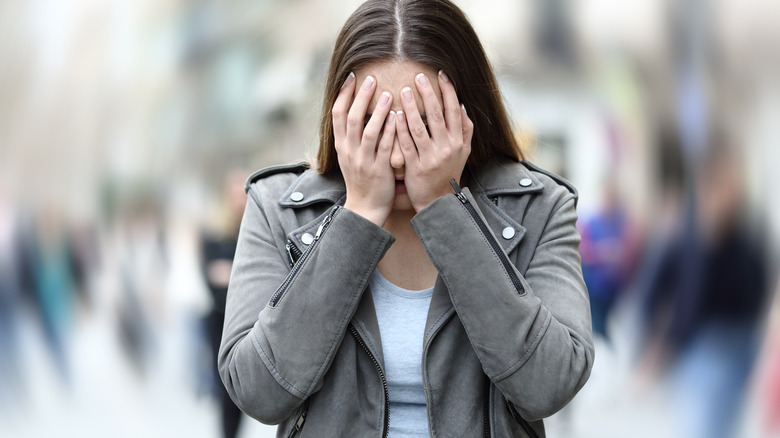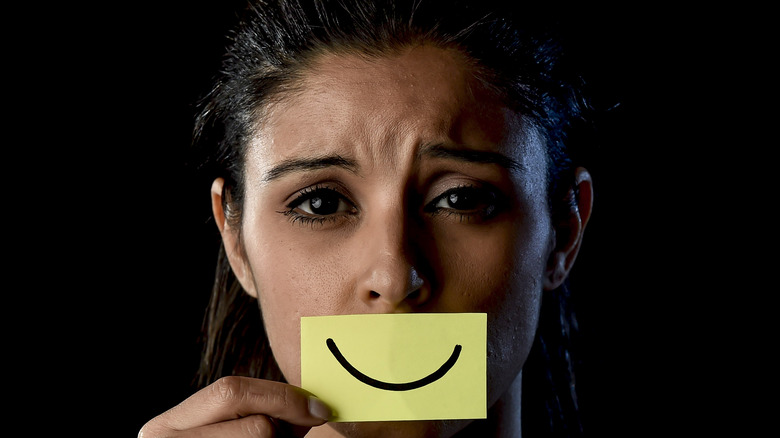The thought of anxiety might make you think of panic attacks or someone who’s afraid of leaving the house. We often associate anxiety with crushing worry and fear, but sometimes, it’s not so obvious. If you get anxious but are still able to put on a brave face and go about the world, you may have high-functioning anxiety.
While “high-functioning anxiety” isn’t a recognized mental health diagnosis, it refers to people who experience the kind of anxiety that doesn’t affect aspects of their lives the same way that more severe anxiety does (via Verywell Mind). You might still be able to get dressed in the morning, take care of your home and kids, get yourself to work, complete tasks, and socialize. Underneath the surface, however, anxiety is very present. No one can see it since you’re functioning so well, but you might be terrified to make a mistake, take a sick day, disappoint your friends, be in the moment, or say no to another commitment — your insides don’t match up with your outsides (via MindBodyGreen). You might even eventually reach a breaking point.
How you can manage your high-functioning anxiety

Although it may feel more manageable than severe anxiety, high-functioning anxiety is still important to manage. If it goes untreated, it can become a vicious cycle that starts to feel less and less sustainable (via MindBodyGreen). Dr. Perpetua Neo, a doctor of clinical psychology, suggests first asking yourself “why” you’re having the emotions you’re having. Asking questions like, “What bothers me the most right now?” and “What do I want to control?” can help you to identify what it is that needs attention, rather than just worrying with no answer in sight. Next, she suggests creating a boundary between what you can and cannot control. Embrace the unknown and recognize that some things are completely out of our control, so worrying can be futile.
Talk therapy is also helpful for anxiety, according to MedicalNewsToday. Cognitive behavioral therapy is especially useful in changing our thoughts, which can trigger anxiety. Medication is another avenue that is often used for treating anxiety. It may take some trial and error to figure out the right medication and dosage for you, but many people find relief. Talk to your doctor to work out the best treatment plan for you.







